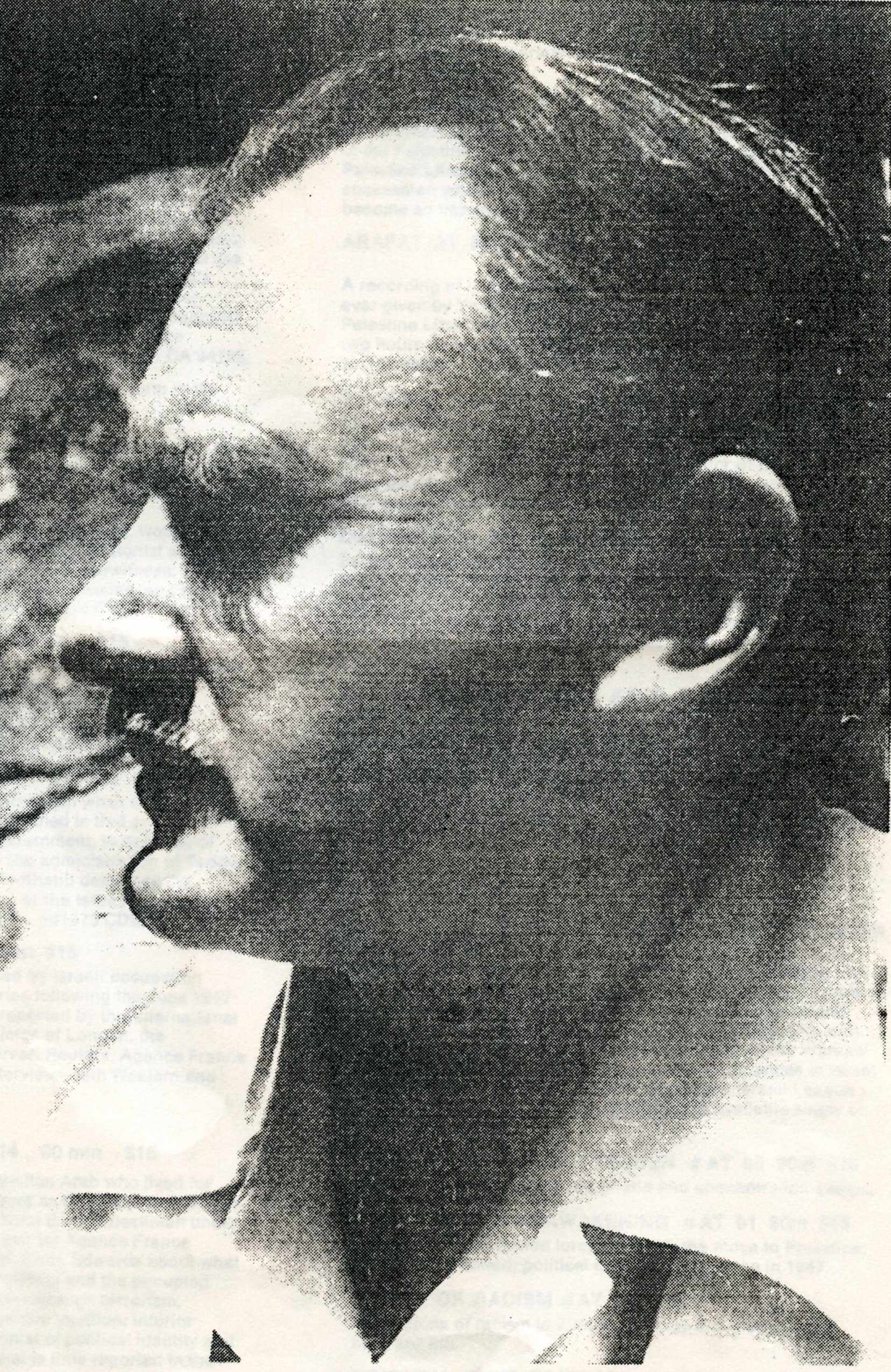Independent Collections
These collections were produced by independent journalists. Many of these recordings make up the bulk of the original collection of the Freedom Archives.
Subcollections
-
Colin Edwards Collection
Materials representing the life-work and journalism of a Welsh radio correspondent and journalist who worked for Pacifica stations, the BBC and many other broadcasters. -
Colin Edwards Free Speech Movement
This collection is produced by journalist Colin Edwards and represent a comprehensive account of the Free Speech Movement and its effect on the political climate of UC Berkeley. -
Programs produced by Kiilu Nyasha
Kiilu Nyasha is a revolutionary journalist and former member of the Black Panther Party. Kiilu still hosts Freedom Is A Constant Struggle, which now appears as a TV program. -
“Nothing is More Precious Than…” a news magazine including music and poetry
KPFA weekly news program running from 1973-1976 featuring in-depth coverage of liberation struggles around the world. -
“The Real Dragon” a news magazine including music and poetry
Real Dragon was a radio program broadcast on KPFA from 1971-1973. This news show focused on issues of national liberation, political prisoners, Vietnam and other major national and international topics.
Documents
7 Documents Found
 Real Dragon
Real Dragon
Date: 8/18/1973Call Number: RD 059Format: 1/4 7 1/2 ipsProducers: Lincoln Bergman, Claude MarksProgram: Real DragonCollection: “The Real Dragon” a news magazine including music and poetry
Program that includes coverage of Indochina, prison movement, labor struggles. (script on file)
Call Number: CE 589Format: 1/4 7 1/2 ipsProducers: Colin EdwardsCollection: Colin Edwards Collection
April, 1955 complete interview with cameraman Pierre Schoendoerffer who was captured by the Viet Minh on March 18, 1954 in Dien Bien Phue, Vietnam. He was held prisoner in an “indoctrination” or “re-education” camp for four months where he underwent daily lectures meant to teach French prisoners how the war negatively affects both Vietnam and France. No one was killed in the camp but treatment to the soldiers depended on their reception to the “indoctrination.”
Call Number: CE 590Format: 1/4 7 1/2 ipsProducers: Colin EdwardsCollection: Colin Edwards Collection
1. An updated and edited recording of the original interview conducted with Pierre Schoendoerffer in April, 1955. Colins narrates over clips taken from original interview.
2.Complete raw footage of interview with Pierre Schoendoerffer in April, 1955.
Complete raw footage from interview with cameraman Pierre Schoendoerffer who was captured by the Viet Minh on March 18, 1954 in Dien Bien Phu, Vietnam. He was held prisoner in an “indoctrination” or “re-education” camp for four months where he underwent daily lectures meant to teach French prisoners how the war negatively affects both Vietnam and France. No one was killed in the camp but treatment to the soldiers depended on their reception to the “indoctrination.”
Ambassador Fedorenko begins with the Soviet justification of the cessation of diplomatic relations with Israel and condemns Israeli aggression. Lord Canyton from the United Kingdom follows, the Moussa Keita from Mali. He speaks on how the security council is moving too slow in condemning Israeli aggression and is in fact acting in complicity with imperialism. Egypt follows and states that the United States bears the largest responsibility for this crisis. Milko Tarabanov from Bulgaria follows with statements claiming Arab states have a right to defend themselves against invasion. George Ignatieff (Canada), Roger Sadue (France) and Ambassador Goldberg (United States) finish the reel talking about the need to base information on reports from UN observers, for UN observers to have complete freedom of movement and for the UN offices in Jerusalem is restored.
Reel focuses on debates concerning a cease-fire. USSR; USA; Bulgaria; India; Nigeria; France; then USSR again. USSR asks that the council meets again in two hours no matter what that its not about whether the order to cease-fire has been given, its about whether the order has been obeyed. Council adjourns.
News commentary and reports from June 9th 1967 and a speech from an unknown UN speaker questioning how can Israel be practicing self-defense if they’re on someone else’s soil?
The primary topic of debate is the need for the UN to reestablish communication with its observers on the ground. USSR and other “third-world” countries claim Israel is impeding the restoration of contact with the observers. At the end of the session the Syrian delegates reports that he has just been in contact with Syrian generals and that Israel has not halted its aggression. Following the adjournment of the council, there are reports on the events of the council. The tape also features the voice of Gamal Abdel Nasser who is offering his resignation to the Egyptian radio.
7 Documents Found






